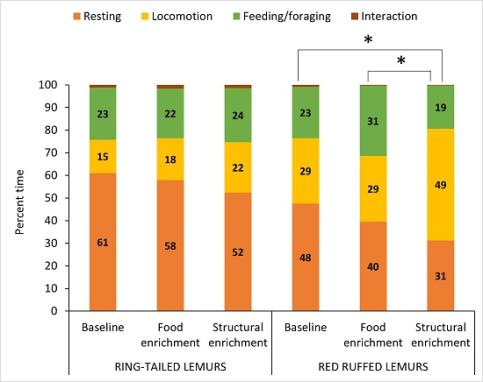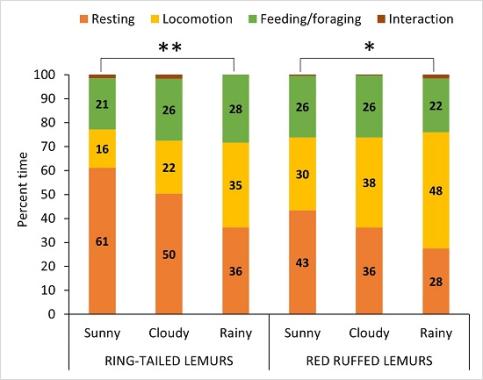Results - Behavior
Enrichment effect on lemurs’ behavior

Ring-tailed lemurs:
No enrichment: They rested the most.
Enrichment: They rested less and moved more, although the results were not statistically significant.
Red ruffed lemurs:
No enrichment: They rested the most.
Food enrichment: They fed/foraged significantly more.
Structural enrichment: They moved significantly more.
* p < 0.05 (χ2 test)
Visitor effect on lemurs’ behavior

Ring-tailed lemurs:
They rested more and moved less when visitors were present, although the results were not statistically significant.
Red ruffed lemurs:
They rested significantly more and moved significantly less when visitors were present.
** p < 0.01 (χ2 test)
Weather effect on lemurs’ behavior

Ring-tailed lemurs:
They rested the most when it was sunny.
They moved the most when it was rainy.
Red ruffed lemurs:
They rested the most when it was sunny.
They moved the most when it was rainy.
* p < 0.05 / ** p < 0.01 (χ2 test)
Temperature effect on lemurs’ behavior

Ring-tailed lemurs:
They rested the most when it was warm.
They moved and fed/foraged the most when it was cooler.
However, the results were not statistically significant.
Red ruffed lemurs:
They rested the most when it was warm.
They moved the most when it was cold.
* p < 0.05 / ** p < 0.01 (χ2 test)
Responsible for this page:
Director of undergraduate studies Biology
Last updated:
05/28/21
